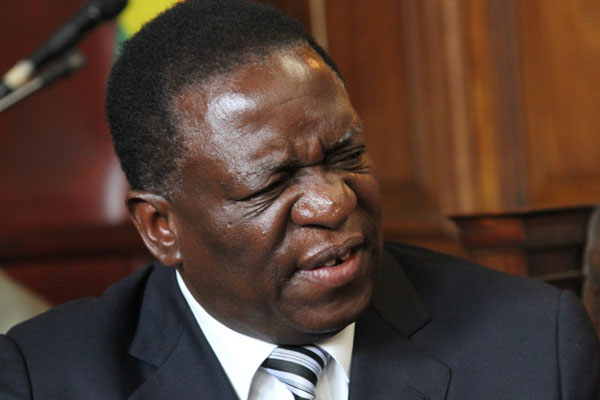Four United Nations special rapporteurs have added their voice to the chorus of disapproval of the Private Voluntary Organisations Amendment Bill, 2021 which seeks to bar the NGOs from receiving external funding, or involvement in partisan politics.
The government says the proposed amendments seek to combat money laundering and financing of terrorism in Zimbabwe through Private Voluntary Organisations (PVOs).
However, activists have argued that the amendments are meant to interfere with the operations of NGOs.
In a letter to President Emmerson Mnangagwa dated 17 December 2021, Clément Nyaletsossi Voule Special Rapporteur on the rights to freedom of peaceful assembly and of association, Irene Khan Special Rapporteur on the promotion and protection of the right to freedom of opinion and expression, Mary Lawlor Special Rapporteur on the situation of human rights defenders, and Fionnuala Ní Aoláin Special Rapporteur on the promotion and protection of human rights and fundamental freedoms while countering terrorism raised concerns on the amendment bill.
The UN officials said the proposed definition of the existing definition of “private voluntary organization” in Section 2(1) of the PVO Act.
Currently, these types of organizations are understood as “any body or association of persons, corporate or unincorporated, or any institution” which pursue certain specified objectives, such as “provision for material, mental, physical and social needs of persons or families”; “the rendering of charity to persons or families in distress”; “the provision of funds for legal aid”, or “other objects as may be prescribed”.
“We are concerned this might create uncertainty about the law’s scope and make it difficult for organizations to discern their legal obligations and act accordingly. This could also lead to broad interpretations from relevant administrative and judicial bodies, giving them wide discretionary powers to apply the law and impose burdensome requirements on a diverse group of community and informal associations that are currently excluded from regulation,” the UN officials said.
Clause 2 of the Amendment Bill also reforms exemptions for common law universitas organisations and Trusts registered before the High Court, which are currently excluded from registering under the PVO Act. If the Amendment Bill is passed, universitas organizations and these types Trusts will be subjected to the registration requirements, control and regulation by the Registrar and the Minister.
The UN officials said these provisions may serve as basis for restricting the operation of many NGOs, including human rights groups, currently operating as universitas organizations or Trusts under the Deeds Registries Act.
Under the new provisions, the Minister will undertake a risk assessment of all PVOs at least once every five years. Based on a risk assessment, the Minister may designate certain sectors or types of PVOs at “high-risk of or vulnerable to misuse by terrorist organizations whether as a way for such terrorist organizations to pose as legitimate entities; or to exploit legitimate entities as conduits for terrorist financing, including for the purpose of escaping asset freezing measures; or to conceal or obscure the clandestine diversion of funds intended for legitimate purposes, but diverted for terrorist purposes”.
“The ambiguity of the risk assessment designation as provided in the Amendment Bill is particularly worrisome in light of the broad power granted to the Minister to “prescribe such additional or special requirements, obligations or measures” to a highrisk entity. The power to “revoke licensing or registration of a non-compliant private voluntary organization or to order removal of a director, trustee, employee or other office bearer of a private voluntary organizations” may have a particular chilling effect on civic space,” the letter read.
“We are seriously concerned that the overall prospective impact of the Amendment Bill, would likely be detrimental to civic space in Zimbabwe.”

